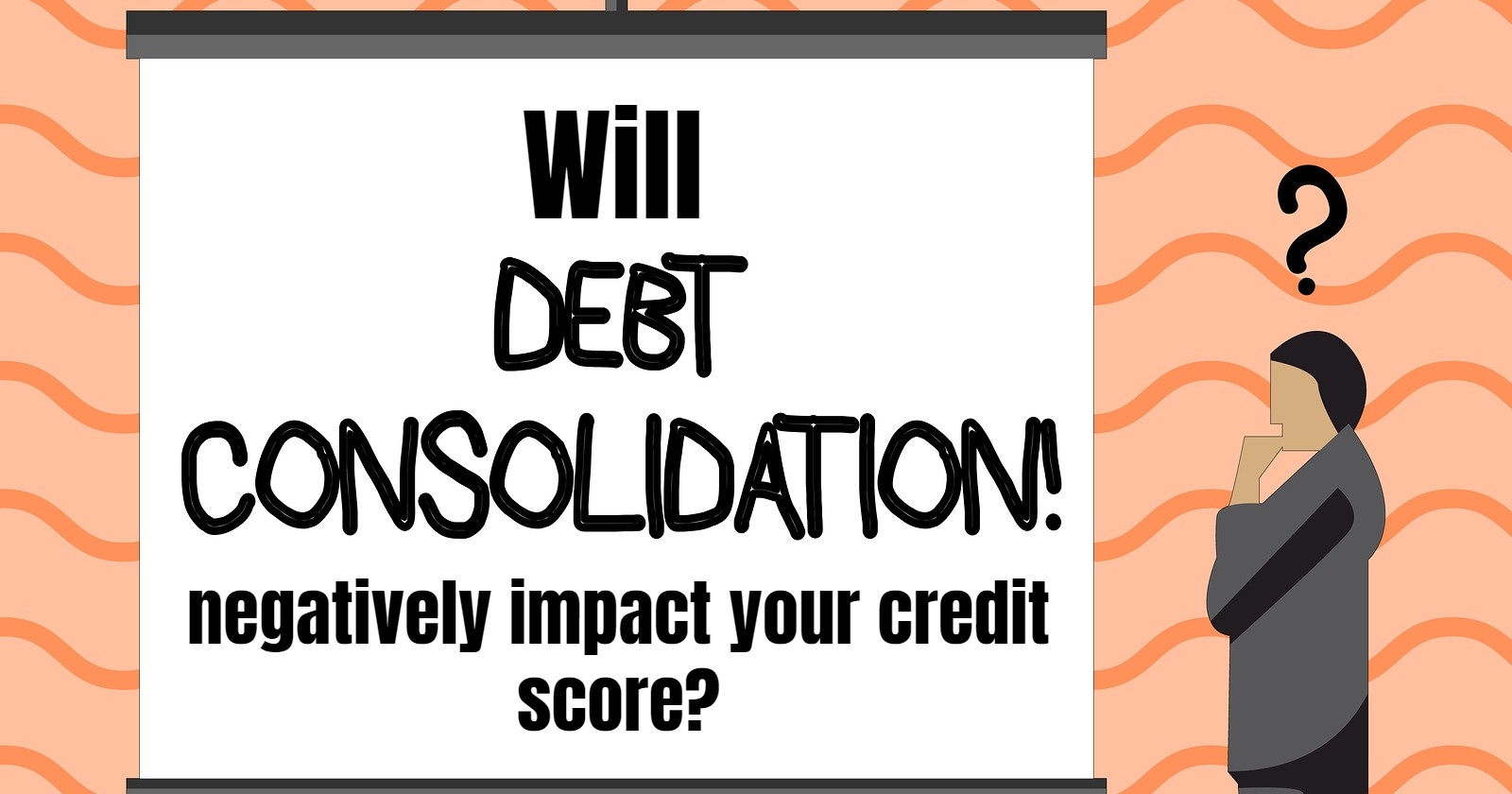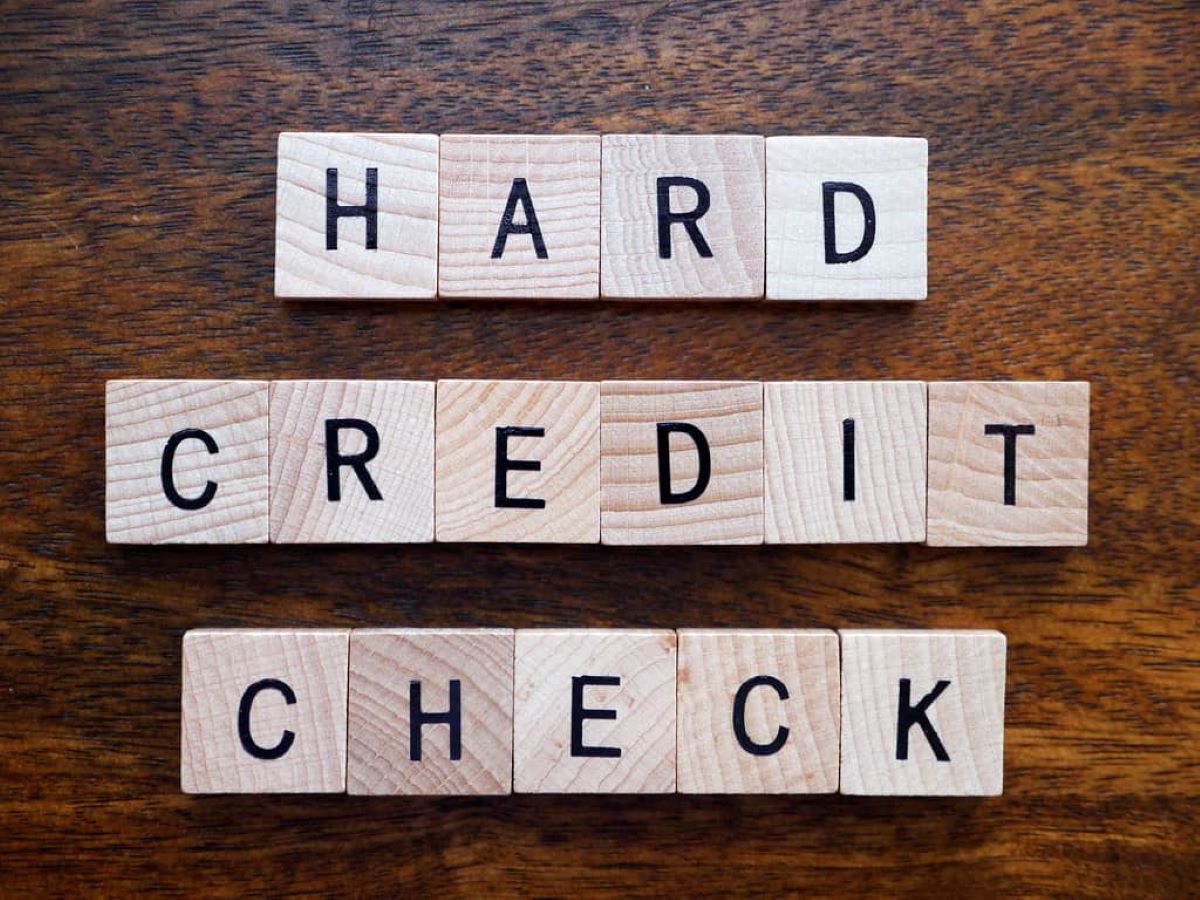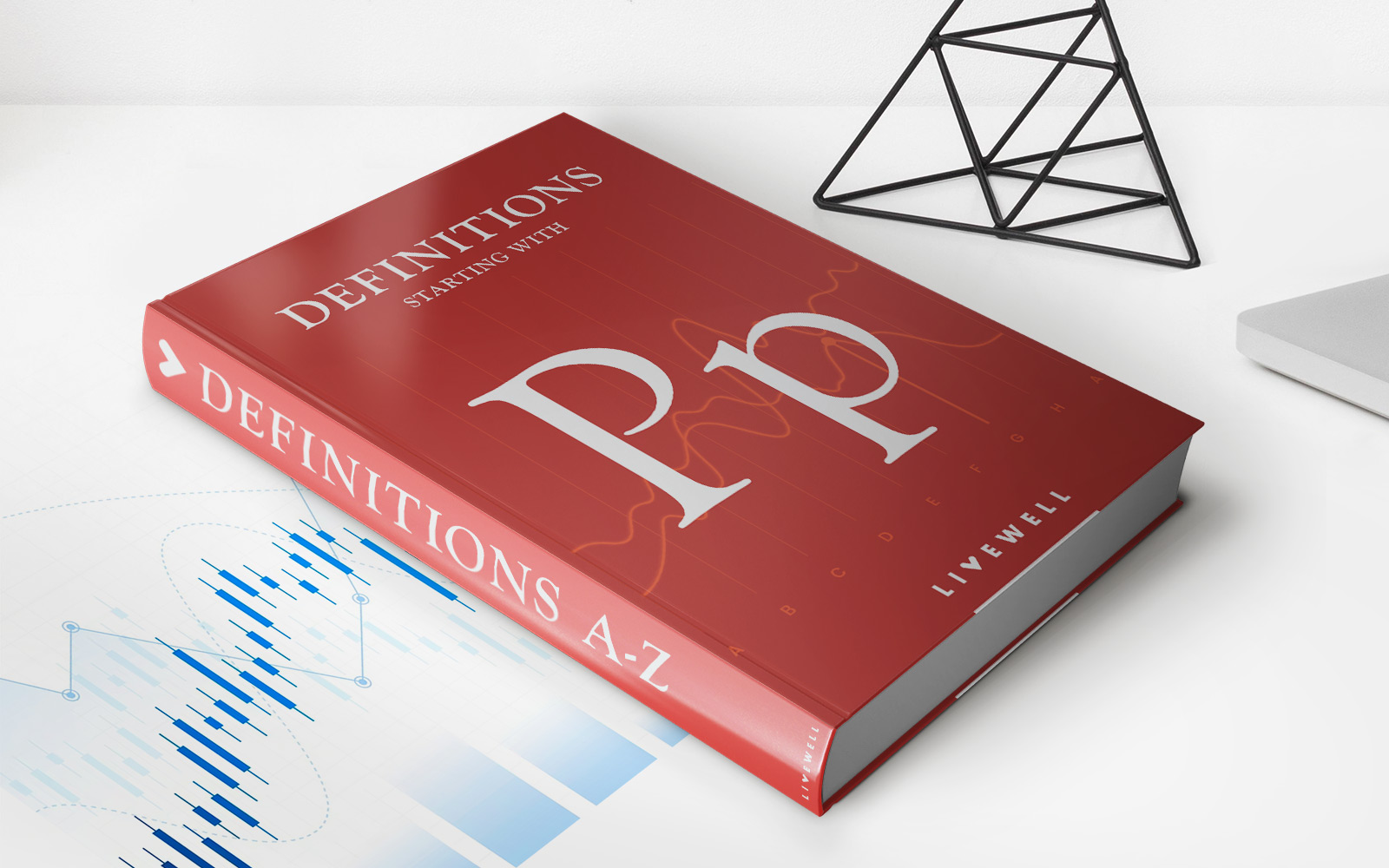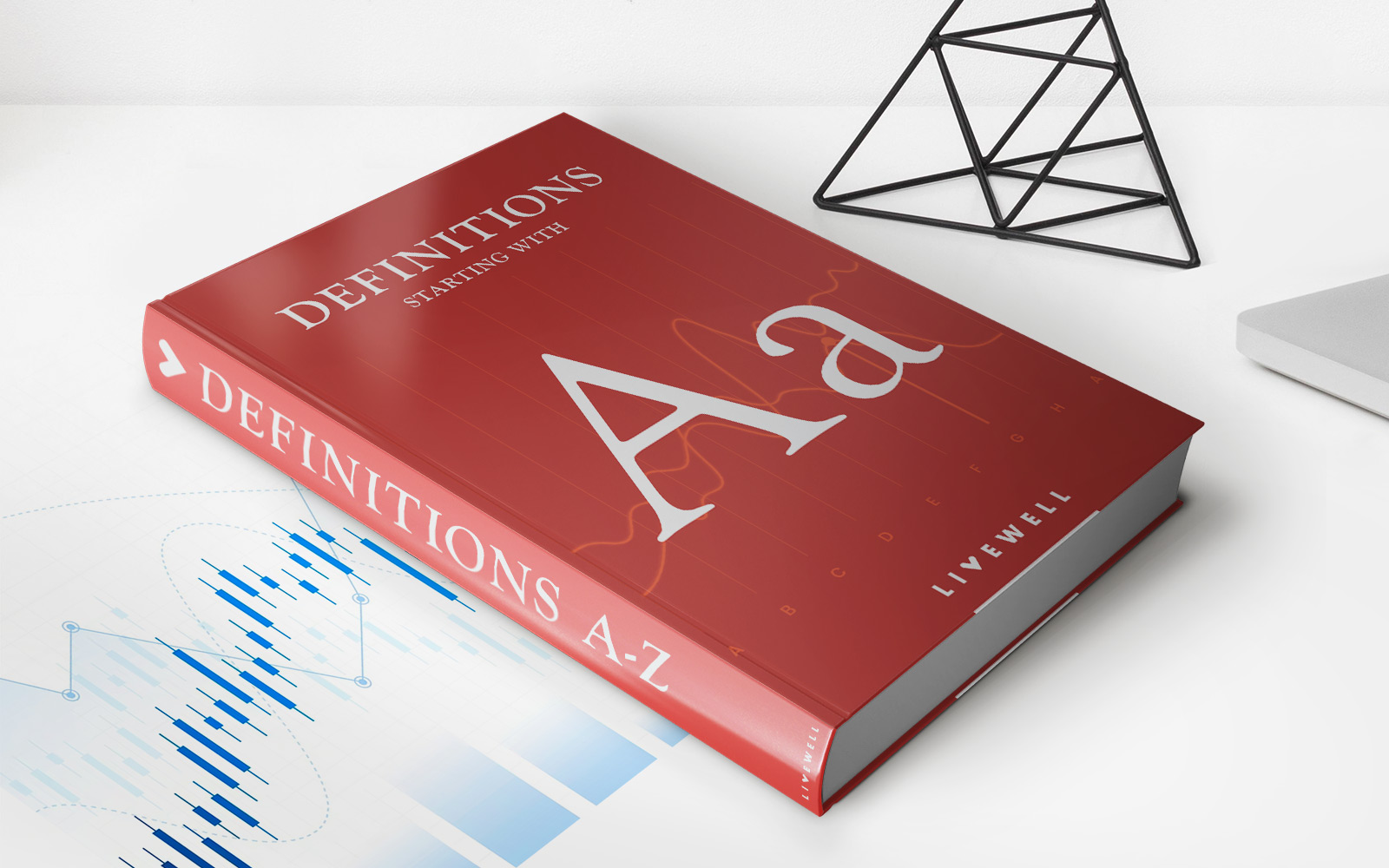

Finance
How Does Heloc Affect Credit Score
Modified: March 6, 2024
Learn how using a home equity line of credit (HELOC) can impact your credit score. Understand the connection between finance and credit health.
(Many of the links in this article redirect to a specific reviewed product. Your purchase of these products through affiliate links helps to generate commission for LiveWell, at no extra cost. Learn more)
Table of Contents
- Introduction
- What is a Home Equity Line of Credit (HELOC)?
- How Does a HELOC Work?
- Understanding Credit Scores
- Factors that Affect Credit Scores
- Impact of HELOC on Credit Score
- Timely Payments and Credit Score
- Credit Utilization and HELOC
- Length of Credit History and HELOC
- Closing a HELOC and Credit Score
- Tips for Managing a HELOC and Credit Score
- Conclusion
Introduction
Welcome to the world of Home Equity Line of Credit (HELOC) and its effects on your credit score. For those who are unfamiliar, a HELOC is a type of loan that allows homeowners to leverage the equity built up in their property. This line of credit can be accessed as needed, making it a flexible borrowing option for various financial needs.
In this article, we will explore how a HELOC works and delve into the impact it can have on your credit score. Understanding this relationship is essential for homeowners who are considering a HELOC or already have one, as it can affect your overall financial health and borrowing potential.
Before we dive into the specifics, let’s briefly explain what a credit score is and why it matters. Your credit score is a numerical representation of your creditworthiness and is used by lenders to assess your risk as a borrower. It is based on various factors such as payment history, credit utilization, length of credit history, types of credit, and new credit applications. Having a high credit score demonstrates responsible borrowing habits and can result in more favorable loan terms and interest rates.
Now that we have a basic understanding of credit scores, let’s explore how a HELOC can affect yours. Throughout this article, we will discuss the factors that influence credit scores and examine how a HELOC can impact each one. We will also provide some tips on managing your HELOC to minimize any negative effects on your credit score.
So, if you’re ready to unlock the secrets of the HELOC and its relationship with your credit score, let’s get started!
What is a Home Equity Line of Credit (HELOC)?
A Home Equity Line of Credit, commonly referred to as a HELOC, is a type of loan that allows homeowners to borrow money against the equity of their property. Equity is the difference between the current market value of the home and the remaining mortgage balance. Essentially, a HELOC provides homeowners with a revolving line of credit, similar to a credit card, that they can access as needed for various financial purposes.
HELOCs typically have a draw period, during which homeowners can borrow funds, followed by a repayment period. During the draw period, which usually lasts around 5 to 10 years, borrowers can use the line of credit and only pay interest on the borrowed amount. The repayment period, which generally spans 10 to 20 years, allows borrowers to repay the outstanding balance, including both principal and interest.
One of the advantages of a HELOC is its flexibility. Unlike traditional loans, where borrowers receive a lump sum upfront, a HELOC provides homeowners with the option to borrow as much or as little as they need, up to their approved credit limit, during the draw period. This feature can be particularly useful for financing home improvements, consolidating debt, covering unexpected expenses, or funding education.
It is important to note that a HELOC is a secured loan, meaning it is backed by the borrower’s home as collateral. As a result, failure to repay the loan can result in the loss of the property through foreclosure. Before considering a HELOC, it is crucial to assess your financial situation, evaluate your repayment abilities, and understand the terms and conditions of the loan in order to make an informed decision.
Now that we have a clear understanding of what a HELOC is, let’s explore how it works and its potential impact on your credit score.
How Does a HELOC Work?
Now that we have a basic understanding of what a Home Equity Line of Credit (HELOC) is, let’s dive into how it works. Unlike a traditional loan, a HELOC is a revolving line of credit that allows homeowners to borrow funds as needed, up to a predetermined credit limit. Here’s a step-by-step guide on how a HELOC typically works:
- Application and Approval: The first step in obtaining a HELOC is to apply with a lender. The lender will evaluate your creditworthiness, debt-to-income ratio, and the amount of equity you have in your home. If approved, you will be assigned a credit limit.
- Draw Period: Once your HELOC is approved, you can start accessing funds during the draw period. This period usually lasts around 5 to 10 years. You can use the funds for various purposes, such as home improvements, debt consolidation, or other financial needs. The interest rates on HELOCs are typically variable and can fluctuate over time.
- Repayment Period: After the draw period ends, the repayment period begins. During this phase, you can no longer borrow from the line of credit, and you must start repaying the outstanding balance. Repayment periods typically last 10 to 20 years. Keep in mind that payments during this period will include both the principal and interest.
It’s important to note that the repayment structure of a HELOC is different from a regular loan. During the draw period, you only pay interest on the amount you borrow. This can provide more flexibility in managing your finances, as you can choose when and how much you want to borrow. However, it’s crucial to budget and plan accordingly to ensure you can afford the repayment obligations once the draw period ends.
Additionally, it’s worth mentioning that some lenders may offer a combination of fixed and variable interest rates for HELOCs. The fixed rate option provides stability, with a set interest rate for a specific period, while the variable rate option allows the interest rate to change based on market conditions. It’s essential to understand the terms and conditions of your specific loan to make informed financial decisions.
Now that we understand how a HELOC works, let’s delve into how it can impact your credit score and what factors to consider when managing a HELOC to maintain a healthy credit profile.
Understanding Credit Scores
Before we explore the impact of a Home Equity Line of Credit (HELOC) on your credit score, it’s essential to have a solid understanding of what credit scores are and how they are calculated.
A credit score is a numerical representation of an individual’s creditworthiness. It is a tool used by lenders to assess the risk of lending money to a borrower. Credit scores are calculated by credit bureaus, such as Equifax, Experian, and TransUnion, based on various factors. The most commonly used credit scoring model is the FICO Score, which ranges from 300 to 850. The higher the score, the better the creditworthiness.
The factors that influence credit scores include:
- Payment History: This is the most significant factor affecting your credit score. It indicates whether you have made payments on time and have any late or missed payments.
- Amounts Owed: This factor considers your credit utilization ratio, which is the amount of credit you are currently using compared to your total available credit limit.
- Length of Credit History: The length of time you have had credit accounts impacts your credit score. A longer credit history indicates more experience with managing credit.
- Types of Credit: Having a mix of different types of credit, such as credit cards, loans, and mortgages, can positively impact credit scores. It demonstrates your ability to manage various credit obligations.
- New Credit Applications: When you apply for new credit, it can temporarily lower your credit score. Lenders view multiple recent credit applications as a potential risk.
It’s important to note that while the FICO Score is widely used, individual lenders may have their own scoring models or additional factors they consider when assessing creditworthiness.
Now that we have a solid understanding of credit scores and the factors that influence them, let’s explore how a HELOC can impact your credit score in various ways.
Factors that Affect Credit Scores
Several factors contribute to determining an individual’s credit score. Understanding these factors is crucial for managing your credit effectively and making informed financial decisions. Here are the key factors that can impact your credit score:
- Payment History: Your payment history has the most significant impact on your credit score. It indicates whether you have been making your debt payments on time and if you have any late or missed payments. Consistently making timely payments positively affects your credit score, while late payments can have a negative impact.
- Credit Utilization: Credit utilization refers to the percentage of available credit you are currently using. Higher credit utilization can negatively impact your credit score. It is generally recommended to keep your credit utilization ratio below 30% to maintain a good credit score. Therefore, using a large portion of your available credit on a HELOC can impact your credit score adversely.
- Length of Credit History: The length of your credit history is another crucial factor in determining your credit score. This includes the age of your oldest account, the average age of your accounts, and the age of your newest account. A longer credit history indicates a track record of responsible credit management and can positively impact your credit score.
- New Credit Applications: When you apply for new credit, such as a HELOC, it can have a temporary negative impact on your credit score. Multiple applications for new credit within a short period can be viewed as a sign of financial instability. However, the impact is typically minimal and short-lived, lasting only a few months.
- Credit Mix: Lenders like to see a mix of different types of credit in your credit history. This includes credit cards, loans, mortgages, and other accounts. Having a diverse credit mix demonstrates your ability to handle various types of credit obligations and can positively impact your credit score.
It is essential to be mindful of these factors when managing your credit and considering a Home Equity Line of Credit (HELOC). While a HELOC can provide financial flexibility, it is important to understand its potential impact on your credit score. In the next section, we will discuss how a HELOC can affect your credit score and provide tips for managing it effectively.
Impact of HELOC on Credit Score
A Home Equity Line of Credit (HELOC) can have both positive and negative impacts on your credit score, depending on how you manage it. Understanding these potential effects is crucial for maintaining a healthy credit profile. Here are some key points to consider:
1. Credit Utilization: The credit utilization ratio, which is the amount of credit you are currently using compared to your total available credit, can be affected by a HELOC. If you borrow a significant amount from your HELOC and it increases your overall credit utilization, it could have a negative impact on your credit score. It is essential to keep your credit utilization ratio below 30% to maintain a good credit score. Therefore, carefully managing your borrowing and repayment on the HELOC is crucial.
2. Payment History: Making timely payments on your HELOC is crucial for maintaining a positive credit history. Late or missed payments can have a significant negative impact on your credit score. It is essential to prioritize your HELOC payments and ensure they are made on time to protect your credit score.
3. Length of Credit History: Opening a HELOC can have a positive impact on the length of your credit history. As the account ages, it contributes to an increase in the average age of your accounts, which is a positive factor in determining your credit score. Maintaining a HELOC account for a long time and making consistent payments can help build a positive credit history.
4. New Credit Applications: When you apply for a HELOC, it can result in a hard inquiry on your credit report. While a single inquiry has a minimal impact on your credit score, multiple inquiries within a short period can be seen as a sign of financial instability and can lower your credit score. It’s important to carefully consider whether you truly need a HELOC and avoid excessive credit applications.
5. Credit Mix: A HELOC can contribute to a diverse credit mix, which is viewed positively by lenders. Having different types of credit, such as credit cards, loans, and a HELOC, can help demonstrate your ability to manage various credit obligations. This can have a positive impact on your credit score.
It’s important to remember that the impact of a HELOC on your credit score will depend on your individual financial situation and how you manage your borrowing and repayments. Consistently making timely payments, avoiding excessive credit utilization, and maintaining a diverse credit mix are essential strategies for minimizing any negative impact.
In the next section, we will discuss the importance of timely payments and the role they play in maintaining a healthy credit score when managing a HELOC.
Timely Payments and Credit Score
Making timely payments is crucial for maintaining a healthy credit score, and this holds true when it comes to managing a Home Equity Line of Credit (HELOC). Here’s why timely payments matter and how they impact your credit score:
1. Positive Payment History: Your payment history is the most significant factor influencing your credit score. Making consistent and timely payments on your HELOC demonstrates your ability to manage debt responsibly. It establishes a positive payment history, which can have a substantial positive impact on your credit score.
2. Avoidance of Late Payment Penalties: Making timely payments on your HELOC ensures that you avoid late payment penalties or fees. Late payments not only negatively impact your credit score but can also lead to additional costs and financial consequences. Therefore, it is crucial to prioritize your HELOC payments and ensure they are made by the due date.
3. Prevention of Negative Credit Reporting: Late payments on your HELOC can be reported to the credit bureaus, resulting in a negative entry on your credit report. This negative information can stay on your credit report for up to seven years and can significantly lower your credit score. By making timely payments, you can prevent derogatory marks on your credit report and maintain a healthy credit profile.
4. Long-Term Creditworthiness: Consistently making timely payments on your HELOC builds a positive credit history over time. This not only improves your current credit score but also establishes a foundation for long-term creditworthiness. Lenders value a track record of responsible payment behavior, which can open doors to better loan terms and opportunities in the future.
5. Overall Credit Management: Timely payments on your HELOC demonstrate your ability to effectively manage your credit and financial obligations. Lenders view this as a positive indicator of your creditworthiness. By consistently paying your HELOC on time, you showcase your commitment to meeting your financial responsibilities and can improve your overall credit profile.
It’s crucial to prioritize your HELOC payments and ensure they are made by the due date to maintain a good credit score. Set reminders, automate payments, or establish a budgeting system to stay on top of your obligations. By making timely payments, you can protect your credit score, avoid additional fees, and build a positive credit history.
In the next section, we will discuss the impact of credit utilization on your credit score when managing a Home Equity Line of Credit (HELOC).
Credit Utilization and HELOC
Credit utilization, or the amount of credit you are currently using compared to your total available credit, plays a significant role in determining your credit score. When managing a Home Equity Line of Credit (HELOC), it is important to consider how it affects your credit utilization and its impact on your credit score. Here’s what you need to know:
Credit Utilization Ratio: Your credit utilization ratio is calculated by dividing your total credit card balances and other outstanding debts by your total credit limit. For example, if you have a credit card balance of $2,000 and a HELOC with a limit of $10,000, your credit utilization ratio would be 20%.
Impact on Credit Score: High credit utilization can negatively impact your credit score. Lenders view high credit utilization as an indicator of financial risk, suggesting that you may be overextended and may struggle to repay your debts. Keeping your credit utilization ratio below 30% is generally recommended to maintain a good credit score.
HELOC and Credit Utilization: A HELOC can affect your credit utilization in two ways:
- Increase in Available Credit: When you open a HELOC, you increase your total available credit. This can lower your credit utilization ratio, assuming you do not increase your spending. For example, if you have a credit card balance of $2,000 and a HELOC with a limit of $10,000, your total credit limit would increase from $10,000 to $12,000, reducing your credit utilization ratio.
- Increase in Debt: However, if you use a significant portion of your HELOC, it can increase your overall debt and potentially increase your credit utilization ratio. This can have a negative impact on your credit score, especially if your credit card balances or other debts remain high.
Managing Credit Utilization with a HELOC: To manage your credit utilization effectively with a HELOC:
- Monitor your overall debt: Be mindful of your total outstanding balances across all credit accounts, including your HELOC. Keeping your debts low can help maintain a healthy credit utilization ratio.
- Avoid maxing out your HELOC: While a HELOC provides access to funds, be mindful of borrowing large amounts that can significantly increase your credit utilization ratio.
- Make timely payments: Making on-time payments towards your HELOC and other debts helps to minimize your credit utilization ratio.
- Regularly review and adjust your spending: Regularly assess your spending patterns to ensure you are not accumulating excessive debt. Aim to keep your balances well below your available credit limits.
By being mindful of your credit utilization and effectively managing your HELOC, you can minimize the potential negative impact on your credit score. Maintaining a healthy credit utilization ratio is important for demonstrating responsible credit management and maintaining a good credit score.
In the next section, we will discuss the role of the length of your credit history and how a HELOC can impact it.
Length of Credit History and HELOC
The length of your credit history is an important factor in determining your credit score. When managing a Home Equity Line of Credit (HELOC), it is essential to understand how it can impact the length of your credit history and, subsequently, your credit score. Here’s what you need to know:
Role of Credit History Length: The length of your credit history reflects the amount of time you have been using credit. It considers the age of your oldest account, the average age of your accounts, and the age of your newest account. A longer credit history generally indicates a higher level of experience in managing credit and can positively impact your credit score.
Impact of HELOC on Credit History Length:
- Longer Credit History: Opening a HELOC can potentially increase the length of your credit history. As the account ages, it contributes to the average age of your accounts, thereby extending your credit history. This can have a positive impact on your credit score, as long as you maintain responsible borrowing and repayment practices.
- Average Age of Accounts: If the HELOC is your newest credit account, it may temporarily lower the average age of your accounts. However, over time, as the HELOC ages, it can contribute to an increase in the average age of your accounts, which is a positive factor in determining your credit score.
Managing Credit History with a HELOC:
- Keep accounts open: Keeping your oldest credit accounts open, even if you are not actively using them, can help maintain a longer credit history.
- Use the HELOC responsibly: Making timely payments and maintaining a low credit utilization ratio on your HELOC demonstrates responsible credit usage and contributes positively to your credit history.
- Avoid frequent credit account closures: Closing multiple credit accounts, especially older ones, can reduce the average age of your accounts and potentially have a negative impact on your credit history length.
- Pay attention to other accounts: Managing your other credit accounts responsibly is equally important. Late payments or high utilization on other accounts can have a negative impact on your credit history and, subsequently, your credit score.
While a HELOC can initially affect the average age of your accounts, responsible management and long-term usage can contribute to a positive impact on your credit history length. It’s important to maintain a good payment history, avoid excessive credit utilization, and keep your other credit accounts in good standing to maximize the positive effects of the HELOC on your credit score.
In the final section, we will discuss the impact of closing a HELOC and its potential effects on your credit score.
Closing a HELOC and Credit Score
When considering closing a Home Equity Line of Credit (HELOC), it’s important to understand how this decision can potentially impact your credit score. Closing a HELOC can have both positive and negative effects on your credit score. Here’s what you need to know:
Positive Effects:
- Lower Credit Utilization: By closing a HELOC, you are eliminating the available credit associated with that account. This can potentially lower your overall credit utilization ratio, as long as you don’t increase your spending on other credit accounts. A lower credit utilization ratio is generally considered favorable for your credit score.
- Reduced Debt: When you close a HELOC, you eliminate the debt associated with that account. If the HELOC had a high outstanding balance, paying off and closing the account can reduce your overall debt load which can positively impact your credit score.
- Simplified Credit Profile: Closing a HELOC can simplify your credit profile by reducing the number of open accounts. This can make it easier to manage your credit and potentially improve your creditworthiness in the eyes of lenders.
Negative Effects:
- Shortened Credit History: Closing a HELOC, especially if it is one of your older accounts, can shorten your average credit history length. The length of your credit history is an important factor in determining your credit score, so closing a long-standing HELOC might have a negative impact in this regard.
- Reduced Credit Mix: Closing a HELOC can decrease the diversity of your credit mix. Having a mix of different types of credit accounts, such as credit cards, loans, and a HELOC, is considered beneficial for your credit score. Closing the HELOC might result in a narrower credit mix.
- Impact on Payment History: Closing a HELOC that was in good standing can remove a positive payment history from your credit report. On-time payments and a positive payment history contribute to a better credit score, so losing this account’s history might slightly impact your score.
Ultimately, the impact of closing a HELOC on your credit score will depend on your individual credit profile and the overall management of your other credit accounts. If you decide to close your HELOC, it is important to carefully monitor your credit utilization, pay your other debts on time, and maintain a diverse credit mix to mitigate any potential negative effects that might arise.
In the next section, we will provide some tips for effectively managing your HELOC and maintaining a healthy credit score.
Tips for Managing a HELOC and Credit Score
Effectively managing your Home Equity Line of Credit (HELOC) not only helps you make the most of this financial tool but also ensures that it has a positive impact on your credit score. Here are some tips to help you manage your HELOC and maintain a healthy credit score:
- Make Timely Payments: Always prioritize making on-time payments towards your HELOC. Late or missed payments can significantly impact your credit score. Consider setting up automatic payments or reminders to ensure you never miss a payment.
- Monitor Your Credit Utilization: Keep a close eye on your credit utilization ratio, considering both your HELOC and other credit accounts. Aim to keep your credit utilization below 30% to maintain a good credit score. Avoid maxing out your HELOC or other credit accounts, as it can negatively affect your utilization ratio.
- Maintain a Diverse Credit Mix: While your HELOC is a type of credit account, it’s important to have a diverse credit mix. This includes having other types of credit accounts, such as credit cards and loans. Having a mix of credit demonstrates your ability to manage different types of credit responsibly and can positively impact your credit score.
- Avoid Unnecessary Credit Applications: Minimize the number of new credit applications you make while managing your HELOC. Multiple credit inquiries in a short period can negatively impact your credit score. Only apply for new credit if it’s necessary and avoid excessive and unnecessary credit applications.
- Regularly Review Your Credit Report: Keep a tab on your credit report to ensure there are no errors or discrepancies that could negatively impact your credit score. If you notice any inaccuracies, report them to the credit bureaus and resolve any outstanding issues promptly.
- Plan for Repayment: Remember that the draw period of a HELOC is followed by a repayment period when you have to start repaying both the principal and interest. Factor in these repayment obligations into your financial planning and ensure you can comfortably meet the payment requirements.
- Consider Professional Advice: If you are unsure about managing your HELOC and its impact on your credit score, consider seeking advice from a financial advisor or credit counselor who can provide personalized guidance based on your specific situation.
By following these tips, you can effectively manage your HELOC and its impact on your credit score. Responsible borrowing, timely payments, and proactive credit management are key to maintaining a healthy credit profile.
Lastly, remember that every individual’s financial situation is unique, so it’s important to assess your own circumstances and consult with professionals as needed to make informed decisions about your HELOC and overall credit management.
Conclusion
Managing a Home Equity Line of Credit (HELOC) requires careful consideration of its impact on your credit score. A HELOC can provide financial flexibility and opportunities, but it can also affect your creditworthiness. By understanding the relationship between a HELOC and your credit score, you can make informed decisions and take the necessary steps to maintain a healthy credit profile.
Throughout this article, we discussed various aspects of a HELOC’s impact on your credit score. We explored how factors like payment history, credit utilization, length of credit history, and credit mix can influence your credit score. We also examined the specific ways in which a HELOC can affect each of these factors.
Timely payments on your HELOC are crucial for maintaining a positive credit history, while managing credit utilization is essential for keeping your credit score in good shape. Additionally, understanding the impact of closing a HELOC and being mindful of your credit history length and credit mix can help you make strategic decisions.
Remember to monitor your credit report regularly, make responsible financial choices, and seek professional advice when needed. By following the tips provided in this article, you can effectively manage your HELOC and maintain a healthy credit score.
Ultimately, every individual’s financial situation is unique, so it’s important to tailor these insights to your specific circumstances. Be proactive in managing your credit, stay informed, and make decisions that align with your long-term financial goals. With the right approach, your HELOC can serve as a valuable financial tool without negatively impacting your credit score.














